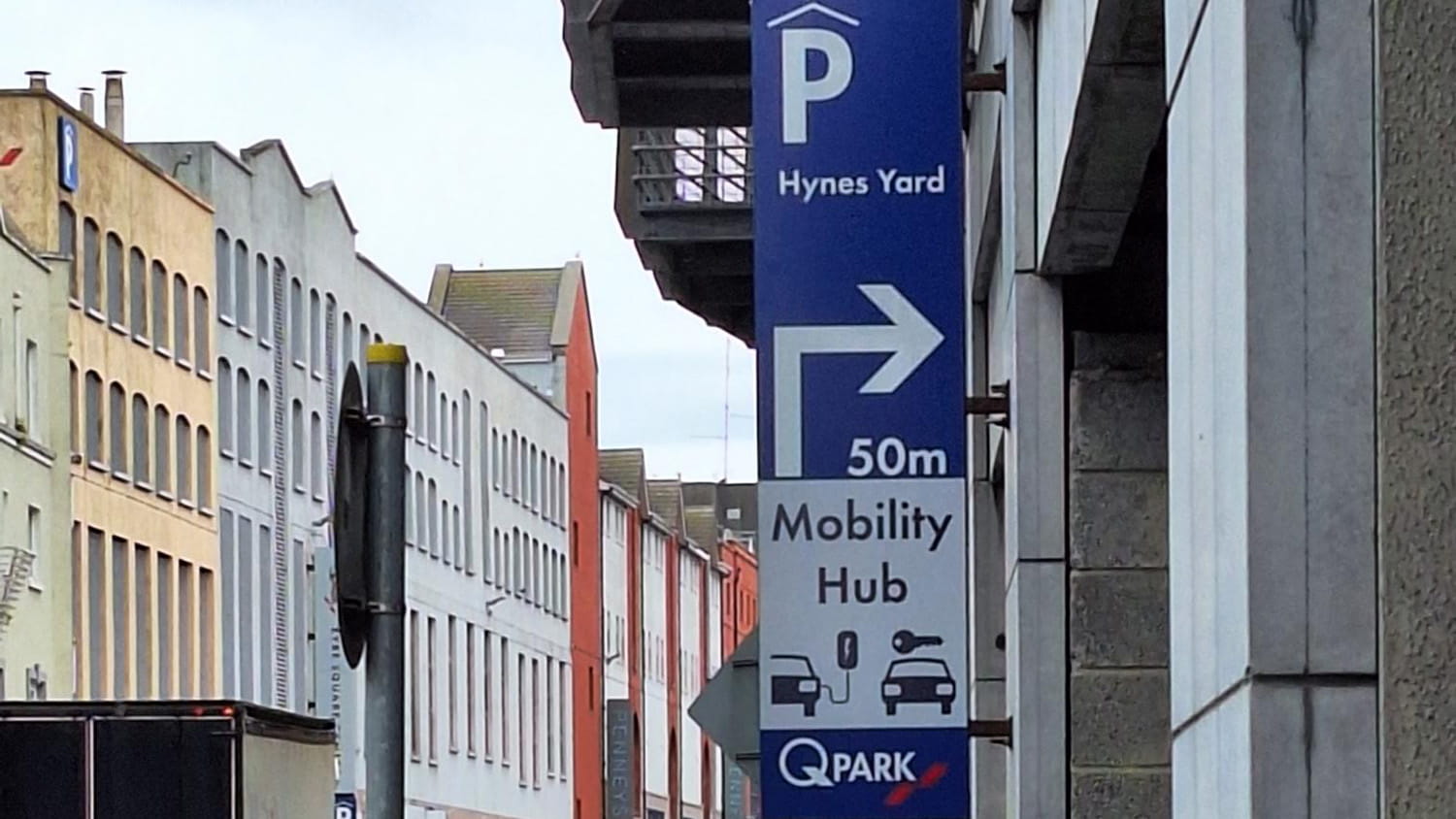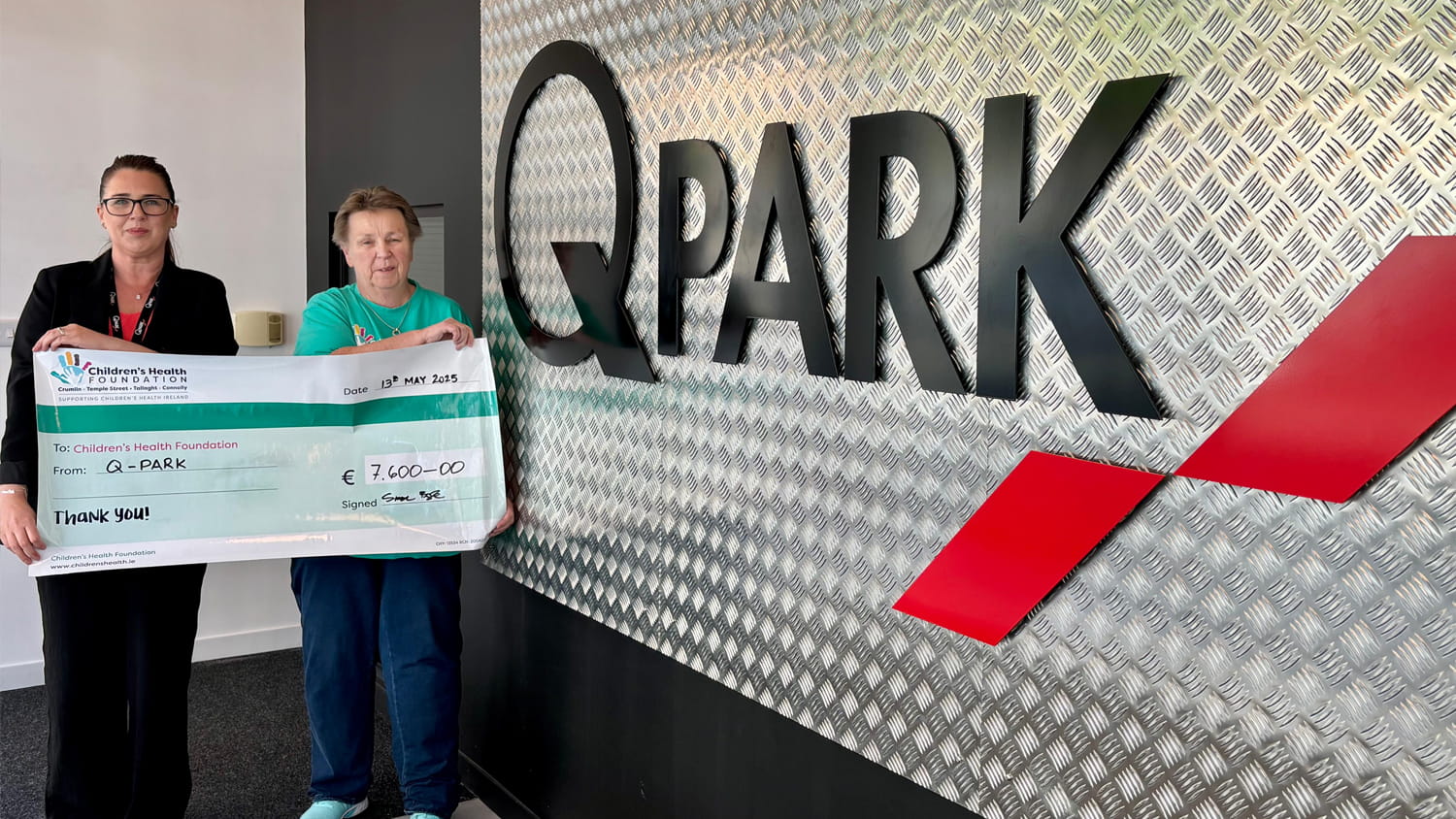
| Your guide to Summer 2025’s biggest events and where to park for less. From sold-out stadium shows to city-wide festivals, here’s how to make the most of the season with convenient parking and exclusive discounts.
Read more
As environmental concerns continue to rise, the world is actively seeking innovative ways to combat climate change and reduce its carbon footprint.
As environmental concerns continue to rise, the world is actively seeking innovative ways to combat climate change and reduce its carbon footprint. One ground-breaking solution that has emerged is the concept of "Dark Hubs." These hubs are revolutionising urban spaces, promoting sustainability, and leading the way towards a liveable future. In this blog, we will explore how Dark Hubs are helping the environment and the numerous advantages they bring when opening in Q-Park parking facilities.
What are Dark Hubs?
Dark Hubs, also known as urban consolidation centres, are centralised locations situated within urban areas designed to facilitate the last-mile delivery process of goods, such as parcels, food and groceries. They serve as distribution points for multiple delivery vehicles from various suppliers, which significantly reduces the number of individual delivery vans on the roads.
Advantages of Dark Hubs
1) Reduced Emissions and Traffic Congestion: By consolidating deliveries into a single location, Dark Hubs minimise the number of vehicles required for last-mile delivery. This results in reduced emissions of greenhouse gases and less traffic congestion in urban areas, making cities more eco-friendly and breathable.
2) Energy Efficiency: Dark Hubs are strategically located to optimise delivery routes, reducing the distance and time required for delivery vehicles to reach their destinations. This energy-efficient approach not only saves fuel but also lowers operational costs for logistics companies.
3) Promotion of Sustainable Transport: With the adoption of Dark Hubs, there is an increased incentive for companies to use electric or alternative fuel vehicles for deliveries. This transition to sustainable transport options further contributes to a cleaner environment and reduces the reliance on fossil fuels.
4) Noise Reduction: Urban areas are often plagued by the constant noise pollution caused by delivery vehicles. By funnelling deliveries through Dark Hubs, the number of vehicles navigating narrow streets is significantly reduced, resulting in a quieter and more pleasant environment for city dwellers.
5) Space Optimisation: Q-Park parking facilities are typically centrally located and well-connected, making them an ideal choice for housing Dark Hubs. By utilising existing infrastructure, such as car parks, we can make the most of available space and avoid the need for new construction, which could encroach on green areas or require demolition of existing buildings.
6) Improved Air Quality: The reduction of delivery vehicles in urban areas leads to better air quality, which has a direct positive impact on the health and well-being of residents. Cleaner air can help reduce respiratory diseases and create a more attractive living environment.
7) Supporting Local Businesses: Dark Hubs not only benefit large logistics companies but also provide support to smaller, local businesses. By offering a centralised point for multiple suppliers to deliver goods, smaller businesses can streamline their logistics operations and compete more effectively in the market.
8) City Planning and Safety: With fewer delivery vehicles on the roads, there is an improvement in road safety for pedestrians and cyclists. Additionally, city planners can use the data from Dark Hubs to optimise traffic flow and plan for a more sustainable urban future.
Dark Hubs represent a significant step forward in transforming urban logistics and tackling environmental challenges. By reducing emissions, promoting sustainable transport, and optimising delivery routes, these hubs play a crucial role in building a greener, more sustainable future.
Q-Park have been at the forefront of the European Parking industry in the creation of Sustainable Mobility Hubs. The aim is to develop parking facilities into vital instruments to help realise urban accessibility, sustainability and liveability. In addition to car parking, Q-Park are also aiming to provide access for shared mobility schemes, electric vehicle charging, last mile delivery and retail space all within their safe and secure parking facilities.
When integrated into Q-Park car parks, Dark Hubs benefit from the existing infrastructure, central locations, and connectivity that make them an ideal choice for eco-friendly urban transformation. As more companies and cities embrace this innovative solution, we move closer to creating a cleaner, healthier, and more efficient urban environment for generations to come. An example of an existing Dark Hub within a Q-Park parking facility is the partnership with Port at Q-Park Leicester Square.
To find out more about Q-Park Mobility Hubs click here
About Q-Park
Q-Park is one of the three leading providers of parking facilities in West Europe, whether wholly owned, leased, managed or in a hybrid business model. Q-Park is notable for its quality approach and has a portfolio comprising over 677,000 parking spaces in over 3,400 parking facilities in the Netherlands, Germany, Belgium, Great Britain, France, Ireland, and Denmark. Q-Park has numerous mobility hubs which provide access to a variety of mobility solutions. We house and support a range of activities from last mile logistics, fleet charging hubs, micromobility and car sharing services which help support urban accessibility, sustainability and liveability.





